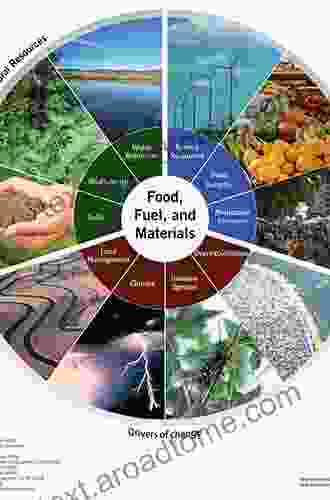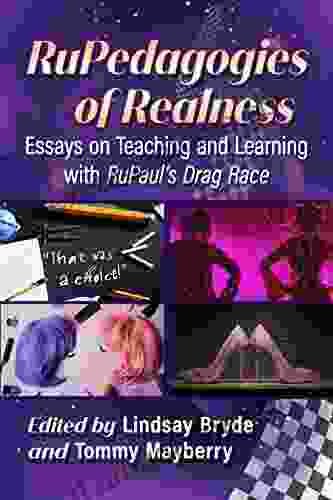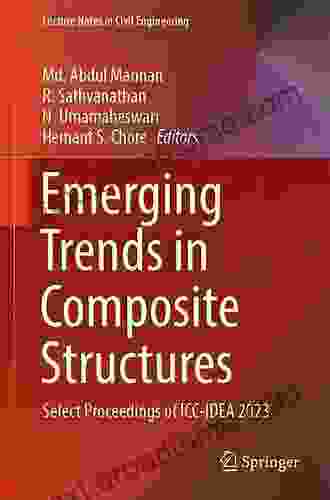Feast on the Knowledge in "Eating Oil: Energy Use in Food Production"

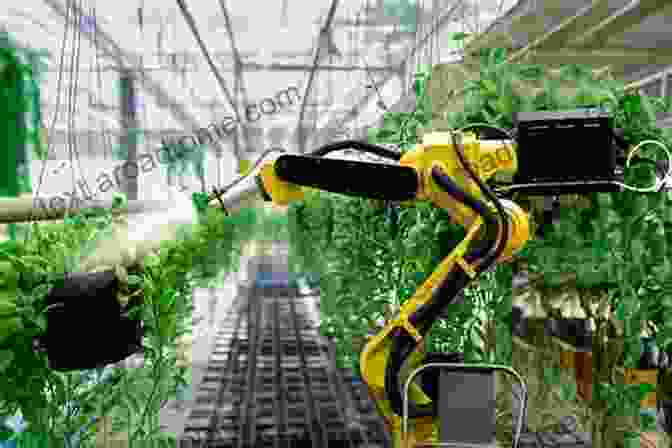
Delve into the Energy-Intensive World of Food Production
In the modern world, where convenience is king, we often overlook the hidden costs of our food choices. One such cost is the energy required to produce, process, and distribute our sustenance. In his groundbreaking book, "Eating Oil: Energy Use in Food Production," author Peter Weber exposes the startlingly high energy consumption associated with our food system. Prepare to be astonished as we embark on a journey that will forever change your perspective on the relationship between food and energy.
5 out of 5
| Language | : | English |
| File size | : | 4750 KB |
| Text-to-Speech | : | Enabled |
| Screen Reader | : | Supported |
| Enhanced typesetting | : | Enabled |
| Word Wise | : | Enabled |
| Print length | : | 225 pages |
Fossil Fuels: The Unsustainable Backbone of Food Production
Weber paints a vivid picture of the food production process, highlighting the heavy reliance on fossil fuels at every step. From the tractors that till the fields to the fertilizers that enrich the soil, from the processing plants that transform raw ingredients to the trucks that transport food to our tables - fossil fuels are the lifeblood of our food system.
The consequences of this dependence are far-reaching and sobering. Weber reveals that the food sector accounts for a staggering 19% of global energy consumption, contributing significantly to greenhouse gas emissions and climate change. Moreover, the finite nature of fossil fuels raises serious concerns about the long-term sustainability of our food production system.
A Comprehensive Exploration of Energy Use
"Eating Oil" meticulously documents the energy requirements of various food groups. Weber compares the energy efficiency of plant-based and animal-based foods, exposing the disproportionate energy consumption associated with meat production. He examines the impact of food processing, packaging, and distribution, revealing the hidden energy costs that often go unnoticed.
The book also dives into the energy implications of food waste, a rampant problem that contributes to both energy waste and environmental degradation. Weber provides illuminating insights into the factors that drive food waste and offers practical solutions to minimize its impact.
Beyond Facts: A Call to Action
While "Eating Oil" is a treasure trove of data and analysis, it is far from a dry academic treatise. Weber's writing is engaging and accessible, making complex concepts relatable and compelling. He skillfully weaves together scientific research, historical context, and personal anecdotes to create a narrative that resonates with readers from all walks of life.
More than just a mere exposé, "Eating Oil" serves as a clarion call to action. Weber challenges readers to rethink their food choices and adopt more sustainable eating habits. He advocates for a shift towards plant-based diets, reduced food waste, and support for local, sustainable food systems.
An Invaluable Resource for Food Policymakers and Consumers
"Eating Oil" is an indispensable resource for policymakers and anyone concerned about the future of our food system. It provides a comprehensive understanding of the energy implications of food production, offering a solid foundation for informed policy decisions and consumer choices.
For consumers, "Eating Oil" empowers readers with the knowledge they need to make informed decisions about the food they eat. It inspires a deeper connection between food and the environment, promoting a greater appreciation for the resources that sustain us.
Exceptional Writing, Unforgettable Impact
Weber's writing in "Eating Oil" is a masterclass in scientific communication. He presents complex data and concepts with clarity and precision, making the book accessible to a wide audience. Yet, beyond its technical excellence, "Eating Oil" lingers in the mind long after the final page has been turned. It challenges us to confront the unsustainable realities of our food system and empowers us to be part of the solution.
: Join the Movement for a Sustainable Food Future
If you care about the future of our planet and the well-being of generations to come, "Eating Oil" is an essential read. It is a book that will change the way you think about food, energy, and the environment. Join the movement for a sustainable food future. Free Download your copy of "Eating Oil" today and let its insights inspire you to become a more conscious and responsible consumer. Together, we can create a food system that nourishes both our bodies and our planet for generations to come.
5 out of 5
| Language | : | English |
| File size | : | 4750 KB |
| Text-to-Speech | : | Enabled |
| Screen Reader | : | Supported |
| Enhanced typesetting | : | Enabled |
| Word Wise | : | Enabled |
| Print length | : | 225 pages |
Do you want to contribute by writing guest posts on this blog?
Please contact us and send us a resume of previous articles that you have written.
 Book
Book Novel
Novel Page
Page Chapter
Chapter Text
Text Story
Story Genre
Genre Reader
Reader Library
Library Paperback
Paperback E-book
E-book Magazine
Magazine Newspaper
Newspaper Paragraph
Paragraph Sentence
Sentence Bookmark
Bookmark Shelf
Shelf Glossary
Glossary Bibliography
Bibliography Foreword
Foreword Preface
Preface Synopsis
Synopsis Annotation
Annotation Footnote
Footnote Manuscript
Manuscript Scroll
Scroll Codex
Codex Tome
Tome Bestseller
Bestseller Classics
Classics Library card
Library card Narrative
Narrative Biography
Biography Autobiography
Autobiography Memoir
Memoir Reference
Reference Encyclopedia
Encyclopedia Marc Leone
Marc Leone Michael Kearney
Michael Kearney Marcelo Guimaraes
Marcelo Guimaraes Megan Phelps Roper
Megan Phelps Roper Matt Miller
Matt Miller William M Epstein
William M Epstein Maurice Nicoll
Maurice Nicoll Shelley Gaskin
Shelley Gaskin Max Alson
Max Alson Kathy Lewis
Kathy Lewis S E Grove
S E Grove Paul Carus
Paul Carus Mario Eguiluz Alebicto
Mario Eguiluz Alebicto Matt Doeden
Matt Doeden Mark Leigh
Mark Leigh Todd A Blodgett
Todd A Blodgett Matias Flury
Matias Flury Nova Publishing
Nova Publishing William Bertram Macfarland
William Bertram Macfarland Mason Malmuth
Mason Malmuth
Light bulbAdvertise smarter! Our strategic ad space ensures maximum exposure. Reserve your spot today!

 Leslie CarterUnveil the Secrets of the Cosmos: Complete Horoscope Capricorn 2024 Monthly...
Leslie CarterUnveil the Secrets of the Cosmos: Complete Horoscope Capricorn 2024 Monthly... Jorge Luis BorgesFollow ·5.4k
Jorge Luis BorgesFollow ·5.4k Holden BellFollow ·9.5k
Holden BellFollow ·9.5k Alfred RossFollow ·7.6k
Alfred RossFollow ·7.6k Michael SimmonsFollow ·8.1k
Michael SimmonsFollow ·8.1k Lucas ReedFollow ·18.3k
Lucas ReedFollow ·18.3k Hunter MitchellFollow ·3k
Hunter MitchellFollow ·3k Eddie BellFollow ·18.6k
Eddie BellFollow ·18.6k Frank MitchellFollow ·6.1k
Frank MitchellFollow ·6.1k

 Ralph Ellison
Ralph EllisonIntelligent Video Surveillance Systems: The Ultimate...
In a world...
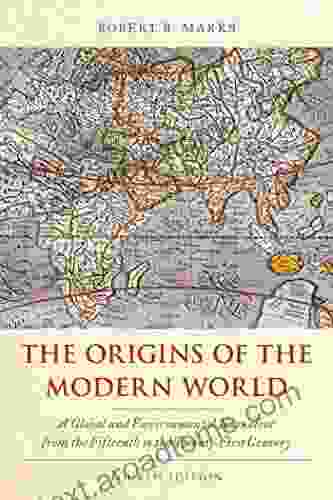
 Jeffrey Cox
Jeffrey CoxThe Origins of the Modern World: A Journey to the Roots...
Embark on an Extraordinary...

 Paulo Coelho
Paulo CoelhoUnlock the Power of Integrated Medical Imaging with...
In the rapidly evolving...

 Charles Reed
Charles ReedThe Christ of the Covenants: Unlocking the Mystery of...
Embark on a Profound...

 Elton Hayes
Elton HayesComputational Hydraulics: A Comprehensive Guide for...
In the realm of fluid dynamics,...
5 out of 5
| Language | : | English |
| File size | : | 4750 KB |
| Text-to-Speech | : | Enabled |
| Screen Reader | : | Supported |
| Enhanced typesetting | : | Enabled |
| Word Wise | : | Enabled |
| Print length | : | 225 pages |


